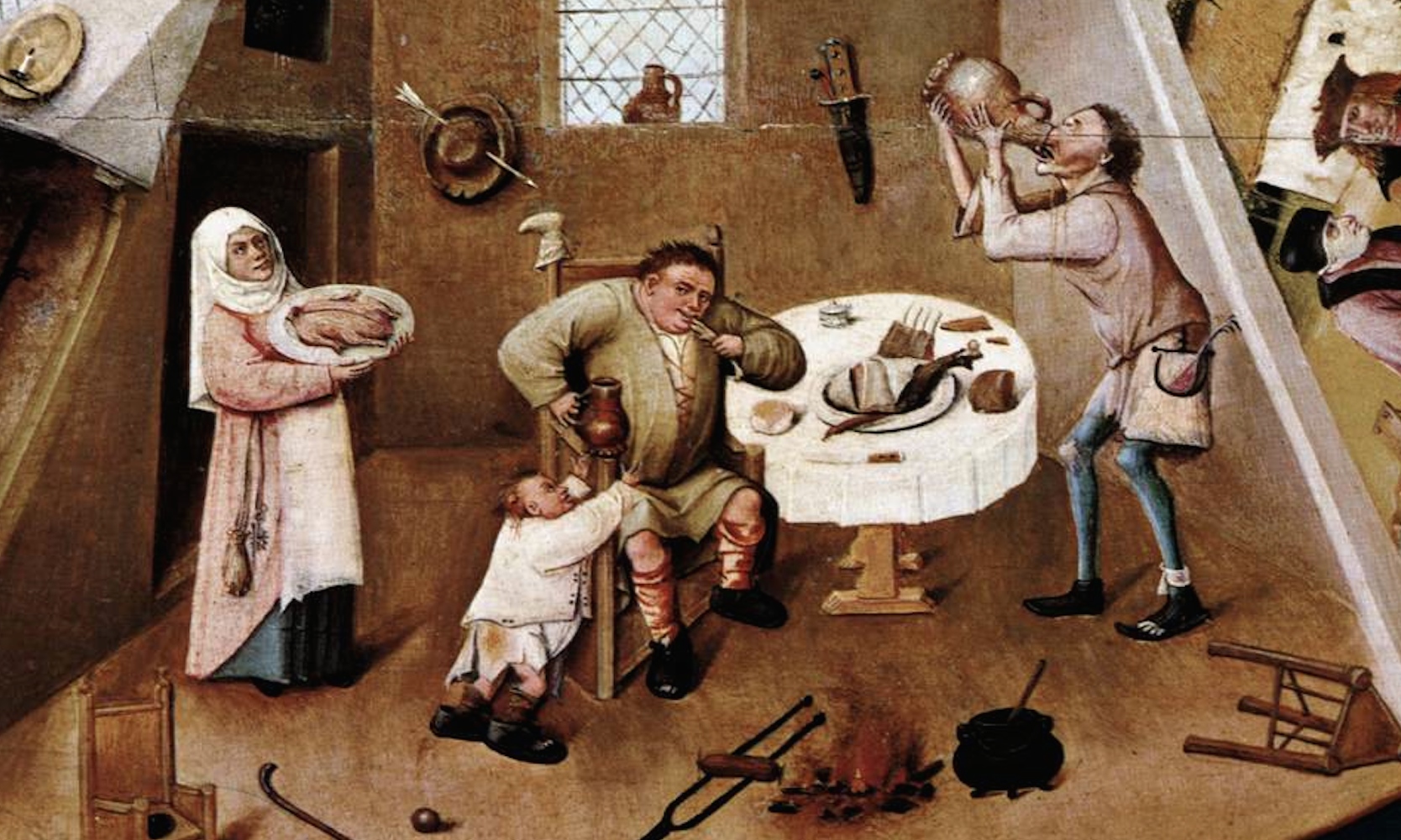I remember the first time I became cognizant of the commission of the sin of gluttony. I found myself at my grandmother’s house with a bucket of gelatinous candies, no supervision, and no stated rules as to how many I might consume without incurring the wrath of anyone with authority over me.
An appetitive jackpot for a younger version of myself.
Several minutes later, however, I found myself in the conflicted situation of choosing to cram yet another candy down my already crowded gullet, despite my stomach’s protestations. Clearly, there was no vacancy in Digestionville. Yet I was continuing to ingest.
The candy promised a happiness which I failed to extract from it. It occured to me that I had committed a venial sin.
St. Thomas Aquinas tells us that “gluttony denotes inordinate concupiscence in eating” (ST II.II q. 148 a. 4), and that we must consider both what we eat and the way in which we eat it.
As for what we eat, there are three ways to err. We may seek expensive foods, refusing, for example, all but the costliest of imported meats. We may also refuse food that is not prepared up to our standards, eating only at the finest of ethnically-themed restaurants, or turning up our noses at anything that was refrigerated and reheated. We may also, of course, eat too much. When the candy starts hurting, it is well past time to stop.
As for how we eat, we may eat before the assigned time. It is easy to see how this would fit into a monastic fasting regime, when one sneaks snacks before the fast is to be broken, but might we not also think of compulsive midnight snacking when we know it to be injurious to our health? Some desires appear salubrious when they are in fact injurious, as The Rule of St. Augustine reminds us. We may also eat greedily. Humans should not eat like sharks in a feeding frenzy. It is beneath our dignity.
All of these forms of gluttony are not sins because people like me are oppressive moralizers, but because they are basic things our parents taught us about: culinary virtue is a key component of a happy moral diet because it is part of both maintaining our own health and living in society. Since we can cultivate these virtues three times a day, they are good ones to have.
✠
Image: Hieronymus Bosch, The Seven Deadly Sins (detail)







